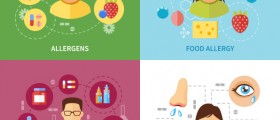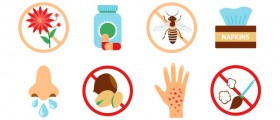
A drug allergy manifests through certain adverse effects, taking place once the body's immune system reacts to the presence of a certain medication in your body. Various drugs may trigger drug allergies, even though the predominant type are over-the-counter painkillers and other such medications. Note that allergic reactions to drugs often do not appear when you take the drug for the first time. Rather, you may be taking specific medications for a while, without any negative effects, before an allergic reaction takes place.
Drug Allergy or Not?
Many times, potential drug allergies turn out to be other kinds of conditions, not involving the immune system at all. Yet, due to the similarities between the symptoms, allergic and non-allergic reactions to medications are commonly misinterpreted. Nevertheless, the severity of these effects can vary from mild to life-threatening.
Reasons behind Drug Allergies
Basically, a drug allergy takes place once your body perceives the drug you have taken as a foreign substance, instead of a cure. Then, your immune system attacks the drug, creating antibodies whose chemicals trigger the adverse reactions.
Amazingly, some people are prone to developing allergic reactions to certain drugs while some will not experience the same effects once they take the identical drug. Therefore, genetics may play an important role here, along with certain environmental factors and the dosage of the medication in question.
Types of Drug Allergies
Antibiotics are the most common drugs, when it comes to triggering allergies. Penicillin and sulfonamides are the substances responsible for such reactions.
Even though most drug allergies manifest through skin problems, digestive problems as well as more complex reactions such as anaphylactic shock may occur as well. Vaccines are also capable of causing allergic reactions usually because of some ingredients they contain.
Furthermore, X-ray contrast may trigger itching, decreased blood pressure and flushing, Aspirin and other anti-inflammatory drugs can lead to breathing problems, hives and wheezing, while hypertension medications may cause swelling of the lips, tongue and face in general.
Either way, if you have already had an adverse reaction to a drug, the next occurrence is bound to be more severe. Thus, taking similar drugs after you have survived a drug allergy is not recommended, especially if your immune system is compromised by diseases. Also, be careful about the dosage and show extra caution if you have drug allergies running in your family or if you suffer from diseases which can change the way your body absorbs drugs.

















Your thoughts on this
Loading...